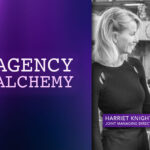By Phil Wilkinson, Digital Delivery Director at creative company Superunion
It is now widely accepted that gaming has transitioned from a niche market to something that is attracting the attention of mainstream audiences and, in turn, brands. One game in particular, Rocket League, has seen a significant surge in interest since the pandemic forced audiences to search for regular, engaging and relatable content from the safety and comfort of their homes.
Rocket League, which was launched in 2015, is essentially football played with cars. Initially, when I heard about it, I was reminded of a Top Gear segment where the presenters played football with an oversized ball and real cars, which seemed like a pointless and silly activity. However, upon playing the game, I quickly realized that it is easy to understand and can be picked up in a few minutes but difficult to master.
I must admit, as a player of Rocket League for 6 years, I am slightly biased. However, the game’s passionate community and universal appeal are reasons enough for brands to take notice.
Accessible to all
Rocket League embodies the true spirit of “esports for all”. It is non-violent, as there are no guns or killing involved. Additionally, players can customize their vehicles in a gender-neutral manner and the game’s premise is based on traditional sports values, making it a well-rounded and wholesome experience. As Senior Strategist Jake Myhre from Superunion notes, “the game attracts a slightly younger player base and acts as a gateway into esports, where kids and parents can share their passion for the game.” While there may be instances of toxic behavior in the in-game chat, this is more a result of human communication rather than a reflection of the game’s content. Plus, it’s easy to disable this feature.
A game of skill
Rocket League is a combination of skill and strategy. The objective is to hit the ball into the goal, with the team having the most goals winning. Players must have control over their car to hit the ball with precision, just like in football. However, there are added layers of driving and aerial skills and advanced players have aerial abilities similar to those in an acrobatic flight simulator. The game also requires strategy, with players having to consider positional awareness, boost management and tactical demolitions. talented players to be able to dribble past a whole team, think Messi, Mo Salah or Ronaldo and you start to see how the parallels to professional sport continue to stack up.
There is also a creative aspect to Rocket League, with players finding new skills and ways to exploit quirks in the game’s physics, which can lead to new mechanical skills being named after their inventors, for example the ‘Musty flick’, ‘Doomsee dish’ and ‘Kuxir pinch’.
These are all great examples of a new mechanical skill that a player has found within the game and then used it in a competitive setting or the community picked it up and it is now part of the meta. In its purest form, this creativity has spawned a new, albeit unintentional, facet of the game: freestyle. Instead of success being judged by who scores the most goals, it becomes a competition of creativity, technical difficulty and style.
But what does this mean for brands?
There’s opportunity here for brands to utilise this nascent wave of universal appeal that Rocket League is promising. We’ve seen some of the wealthiest esports orgs come and go (but mostly stay) within the Rocket League scene. Nasdaq listed, FaZe Clan have established a successful roster of players in the NA region and more recently Mobil 1 have formed one of the most hyped new teams, Gen.G Mobil1 Racing entering the NA region. This is particularly notable for two reasons, firstly Mobil 1 are making the transition from sponsoring traditional racing like F1 and NASCAR over to esports; and secondly, because two very talented UK players have moved across the Atlantic to be part of this new roster. It’s proving to be a successful move with the team delivering great success.
The true potential in Rocket League lies in its ability to attract a wider range of brands compared to other esports, owing to its unique blend of innovative sport and traditional sporting values, as well as its universal and endearing appeal. Brands both within and outside the gaming industry can capitalize on this opportunity.
Commercial organizations have explored traditional esports avenues such as pro teams, brand sponsorships and venue sponsorships but Rocket League offers a unique connection to the core elements of football and racing. The growth of commercial opportunities in these sectors, including stadium sponsorships, pitch-side advertising and shirt sponsorships, have made it easier for new entrants to enter the world of esports.
A testament to this is how Nike’s involvement has grown over the last two years, starting off with just their logo appearing on the away decal for Giants Gaming back last January, through to their release of dedicated full car decals and wheels that promoted their new Mercurial football boots. The release video made a direct correlation between the Rocket League car design and their boot design, summing up the connection neatly as ‘high-performance football gear meets high-performance cars’. This special event within Rocket League had Nike front and centre, allowing users to unlock ‘Nike Federation and Global Decals for dozens of countries’, as well as fully branded Nike game mode, complete with ball, stadium and goal celebration branding.
As a long-time player, fan and advocate of the game, Rocket League has a bright future as a well-developed and widely popular game. Its professional scene has mass appeal and draws in new brands within the Epic Games environment. The game offers opportunities for brands to increase awareness and secure sponsorships but at the moment, the focus is on the enjoyment of playing.




